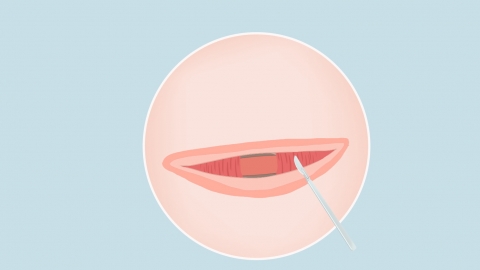Can I stop covering the cesarean section wound with gauze on the ninth day after surgery?
On the ninth day after cesarean section, whether to cover the wound with gauze depends on its healing status. If there is no redness, swelling, discharge, or separation of the wound, and sutures have been removed or absorbable sutures were used, it is generally no longer necessary to cover the wound with gauze. However, if there is still discharge, redness, swelling, or non-absorbable sutures remain in place, continued gauze coverage is needed to protect the wound.

When the wound is healing well, leaving it exposed helps maintain a dry and breathable environment, reducing the risk of infection caused by moisture and heat buildup. At this stage, the skin surface has mostly closed, pain is minimal, and there is no sharp discomfort when touching clothing. After removing the gauze, simply maintaining cleanliness is sufficient; excessive wrapping is unnecessary.
If the wound has not fully healed or shows abnormalities, gauze can shield it from external dust and bacteria and prevent friction or irritation. For example, if there is light yellow discharge, redness, or swelling around the edges, or if non-absorbable sutures were used, continuing to cover the wound with gauze provides protection and creates a stable environment for healing.
In daily care, keep the wound and surrounding skin dry. Use waterproof dressings during showers and dry the area thoroughly afterward. Wear loose, soft clothing to avoid irritating the wound. Nutritionally, increase intake of high-quality protein to support wound healing. Additionally, monitor the wound daily and seek prompt medical attention if any abnormalities occur.




